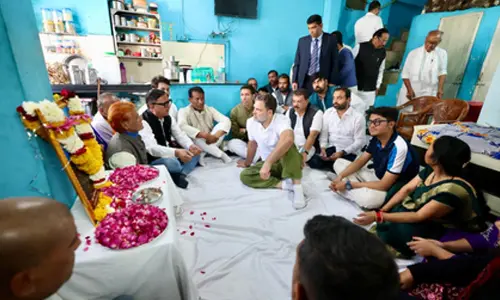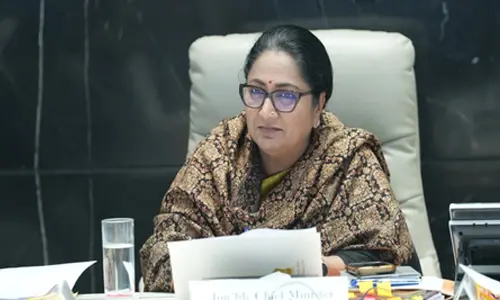The unequal balance of unpaid work

Millions of women, especially in poorer countries, do much higher share of the unpaid work that makes a household
Millions of women, especially in poorer countries, do much higher share of the unpaid work that makes a household
For women who spend all their hours doing unpaid work, the chores of the day kill the dreams of a lifetime. What do I mean by unpaidwork?
It's work performed in the home, like childcare or other forms of caregiving, cooking, cleaning, shopping, and errands, done by a family member who's not being paid.
In many countries, when communities don't have electricity or running water, unpaid work is also the time and labor women and girls spend collecting water and gathering wood.
This is reality for millions of women, especially in poorer countries, where women do a much higher share of the unpaid work that makes a household run.
On average, women around the world spend more than twice as many hours as men on unpaid work, but the range of the disparity is wide. In India, women spend 6 hours a day doing unpaid work, while men spend less than 1.
In the US, women average more than 4 hours of unpaid work every day; men average just 2.5. In Norway, women spend 3.5 hours a day on unpaid work, while men spend about 3.
There is no country where the gap is zero. This means that, on average, women do seven years more of unpaid work than men over their lifetimes. That'sabout the time it takes to complete a bachelor's and a master's degree.
When women can reduce the time, they spend on unpaid work, they increase the time they spend on paid work. In fact, cutting women's unpaid work from five hours a day to three boosts women's participation in the labor force by about 20 percent.
That is hugely significant because it is paid work that elevates women toward equality with men and gives them power and independence. That's why the gender imbalance in unpaid work is so significant: The unpaid work a woman does in the home is a barrier to the activities that can advance her—getting more education, earning outside income, meeting with other women, becoming politically active.
Unequal unpaid work blocks a woman's path to empowerment. Of course, there are some categories of unpaid work that can make life deeply meaningful, including caring for family members. But it's saying nothing against the meaning and value of caregiving to say that it helps all family members—those giving care and those taken care of——when these duties are shared.
In January of 20 14, I went with my daughter Jenn to do a homestay with a family in Tanzania-in Mbuyuni, a village just east of Arusha, near Mt. Kilimanjaro. It was the first overnight visit I did where I stayed with a family in their home, and I was hoping to gain an understanding of people's lives that wasn't available in the books and reports I read, or even in the frank conversations I had with women I met when I traveled.
I was thrilled to be doing this homestay with Jenn, who was 17 years old and in her last year of high school. From the time my children were very young, I've wanted to expose them to the world-not just so they would give back to the people they meet, but so they would connect with them. If there is any meaning in life greater than connecting with other human beings, I haven't found it...
...I want them to see that in the universal human desire to be happy, to develop our gifts, to contribute to others, to love and be loved-we're all the same. Nobody is any better than anybody else, and no one's happiness or human dignity matters more than anyone else's.
That's a lesson that rang out during Jenn's and my Tanzanian stay with Anna and Sanare, a Maasai couple who lived in a small family compound they had built over the years. They put us up in what had originally been a goat hut.
Anna and Sanare had taken over the goat hut when they were married. Later, they built a larger home and moved to another room, and the goats reclaimed their space.
But when Jenn and I moved in, the goats moved out for a few days (at least when we kept the door closed!). I learned more during that homestay than I had learned on any previous foundation trip. I especially learned about the burdens a woman carries to make the home and farm run.
Sanare went off in the morning and worked their family's small commercial stall, an hour's walk away along a main road. He usually went there on foot, though sometimes he got a motorcycle ride from his neighbor.
Anna stayed home and worked the house and farm, and Jenn and I were able to help her with the household chores and activities.
I'd been traveling to poor communities since we started our foundation, and I was never surprised to see women doing all the cooking, cleaning, and caregiving. But I had never felt the full weight of their days—what they were doing from the moment they woke before dawn to the hour they went to bed long after dark.
Jenn and I went with Anna to chop firewood, using dull machetes on gnarly wood stalks. We walked thirty minutes to fetch water and carried it back in buckets on our heads.
We used the wood to build the fire and boiled the water to make tea, then started preparing the food—fetching eggs, sorting beans, prepping potatoes-and cooking it over the flame. The whole family ate dinner together, and we joined the women doing the dishes afterward, all together, at ten at night in the dust of the compound's couryard.
Anna was in motion for seventeen hours a day. The number of hours and the intensity of the laborwere a revelation to me. I didn't learn about it in a book. I felt it in my body.
I could see that Anna and Sanare had a loving relationship and worked hard to make it equal. Still, Anna and the other women inher village were struggling under a massive burden of unpaid labor that was unevenly distributed between men and women. It wasn't just that it affected women's lives; it darkened their futures.
I talked to Anna while we cooked on a fire in her kitchen, and I asked her what she would do if she had more time. She told me she dreamed of starting her own business, raising a new breed of chicken and selling the eggs in Arusha, an hour and a half 's drive away.
The income would change their lives, but it was just a dream. Anna had no time to run a business; she spent all her time helping her family get through the day.
I also got a chance to talk to Sanare. He told me he and Anna were worried about their daughter, Grace, who had not passed her test to go to a government-funded secondary school.
Grace had one more chance to take the test. If she didn't pass it the second time, her only choice would be a private boarding school, which would be very expensive. If Sanare and Anna could not come up with the money, Grace would lose her chance for a better life.
"I'm worried my daughter's life will be like my wife's," he told me. "If Grace doesn't go to school, she'll stay at home and start spending her time with other girls who have not gone to school. The families will start marrying out the girls, and all her hopes for her life will fade away."
It was an especially complicated situation for Sanare and Anna because their son Penda did pass the test to go to a government school, which is not free but is relatively cheap.
So his schooling was assured while Grace's was in doubt. Penda and Grace are twins. They're in the same year in school. They're both bright. But Grace does more work around the house than Penda does. When Grace is doing chores, Penda has time to study...
...There are millions of girls like Grace, and their extra share of unpaid work could make the difference between a bright and flourishing life and a life of cooking and cleaning and never having time to learn and grow.
(With permission from 'The Moment of Lift' by Melinda Gates, published by Pan Macmillan, ` 599)










